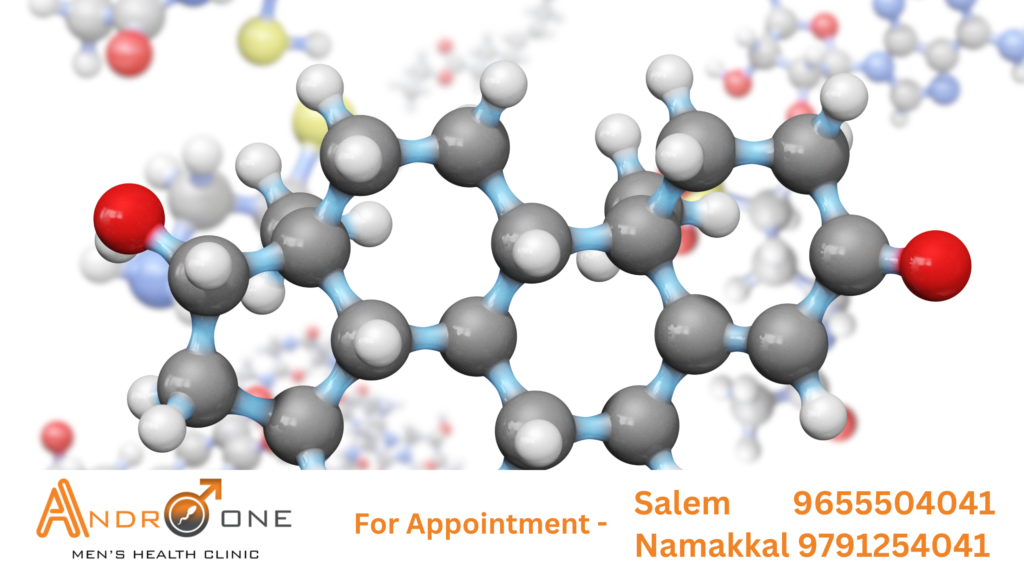Navigating Low Testosterone: Symptoms, Diagnosis, and Treatment Options
Low testosterone, also known as Testosterone Deficiency Syndrome (TD) or Low-T, is a condition that can affect men, particularly as they age. Testosterone is a crucial hormone responsible for male sexual development and functions. The symptoms, diagnosis, and treatment options for low testosterone, drawing insights from medical experts and reputable sources to provide comprehensive information for individuals navigating this condition. Know more about male sexual wellness from the experts in Andrology and Men’s Health in Namakkal. Understanding Low TestosteroneTestosterone, the primary male sex hormone produced in the testicles, plays a vital role in the development of male physical characteristics, such as body and facial hair, deeper voice, and muscle strength. It is also essential for sperm production. Testosterone levels generally decrease with age, leading to low blood testosterone levels in some men. The American Urology Association (AUA) identifies low blood testosterone (Low-T) as levels less than 300 nanograms per deciliter (ng/dL). It’s a medical condition that affects a lot of men consult for more to Sexual Health Information Clinic in Namakkal. Symptoms of Low TestosteroneLow testosterone can manifest through various symptoms, including reduced sexual drive, decreased bone and muscle mass, mood disorders, and potential exacerbation of erectile dysfunction. Some men may experience less energy, decreased libido, lack of concentration, or trouble sleeping. It’s important to note that low testosterone does not always present symptoms, and some individuals only become aware of it after a routine physical examination with blood work. Know more about male sexual wellness from the experts in Andrology and Men’s Health in Namakkal. Diagnosis of Low TestosteroneDiagnosing low testosterone involves a physical evaluation, a review of symptoms, and multiple blood tests, as testosterone levels can fluctuate daily. The AUA defines hypogonadism as a total testosterone level of less than 300 ng/dL. However, some researchers and healthcare providers disagree with this and feel that levels below 250 ng/dL are low. Providers also take symptoms into consideration when diagnosing low testosterone. Additional tests, such as bone density tests, may be considered to assess the impact of low testosterone on bone health. It’s a medical condition that affects a lot of men consult for more to Sexual Health Information Clinic in Namakkal. Factors Affecting Testosterone Levels Several factors can influence testosterone levels, including age, lifestyle, and underlying health conditions. Being overweight, having diabetes or thyroid problems, and taking certain medications can affect testosterone levels. Therefore, simply having low testosterone levels does not always call for taking extra testosterone. It’s crucial for healthcare providers to consider the individual’s specific signs, symptoms, and any blood test results when making a diagnosis. Know more about male sexual wellness from the experts in Andrology and Men’s Health in Namakkal. Treatment Options for Low TestosteroneTreatment for low testosterone, also known as testosterone replacement therapy (TRT), is available for individuals with diagnosed testosterone deficiency. TRT can help alleviate symptoms and improve overall well-being. However, it’s essential to approach TRT under the guidance of qualified specialists, as improper administration of exogenous (synthetic) testosterone or over-the-counter supplements may have harmful side effects, such as testicular atrophy, infertility, and an increased risk of prostate cancer. Lifestyle changes and natural remedies may also be considered as part of the treatment plan. It’s a medical condition that affects a lot of men consult for more to Sexual Health Information Clinic in Namakkal. Seeking Medical AdviceIf individuals are concerned about their testosterone levels, it’s advisable to consult with a healthcare provider. A doctor can verify testosterone levels through appropriate testing and help develop a personalized treatment plan. Open communication with a healthcare provider is crucial for understanding the available treatment options and making informed decisions about managing low testosterone. Know more about male sexual wellness from the experts in Andrology and Men’s Health in Namakkal. In conclusion, navigating low testosterone involves understanding the symptoms, seeking proper diagnosis, and considering the available treatment options. By being aware of the potential signs of low testosterone and seeking medical advice, individuals can take proactive steps towards managing this condition and improving their overall well-being. It’s important to approach the diagnosis and treatment of low testosterone under the guidance of qualified healthcare professionals to ensure safe and effective management of this hormonal imbalance. It’s a medical condition that affects a lot of men consult for more to Sexual Health Information Clinic in Namakkal.

